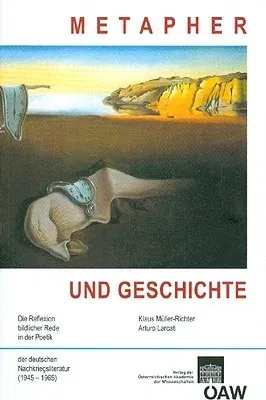Arturo Larcati
(Author)Metapher Und Geschichte: Die Reflexion Bildlicher Rede in Der Poetik Der Deutschen Nachkriegsliteratur (1945-1965)Paperback, 27 April 2007

Qty
1
Turbo
Ships in 2 - 3 days
In Stock
Free Delivery
Cash on Delivery
15 Days
Free Returns
Secure Checkout

Part of Series
Sitzungsberichte Der Phil.-Hist. Klasse
Part of Series
Veroffentlichungen Der Kommission Fur Literaturwissenschaft
Part of Series
Sitzungsberichte Der Philosophisch-Historischen Klasse
Print Length
259 pages
Language
German
Publisher
Austrian Academy of Sciences Press
Date Published
27 Apr 2007
ISBN-10
3700138865
ISBN-13
9783700138860
Description
Product Details
Book Format:
Paperback
Country of Origin:
US
Date Published:
27 April 2007
Genre:
Germany
ISBN-10:
3700138865
ISBN-13:
9783700138860
Language:
German
Location:
Vienna
Pages:
259
Publisher: